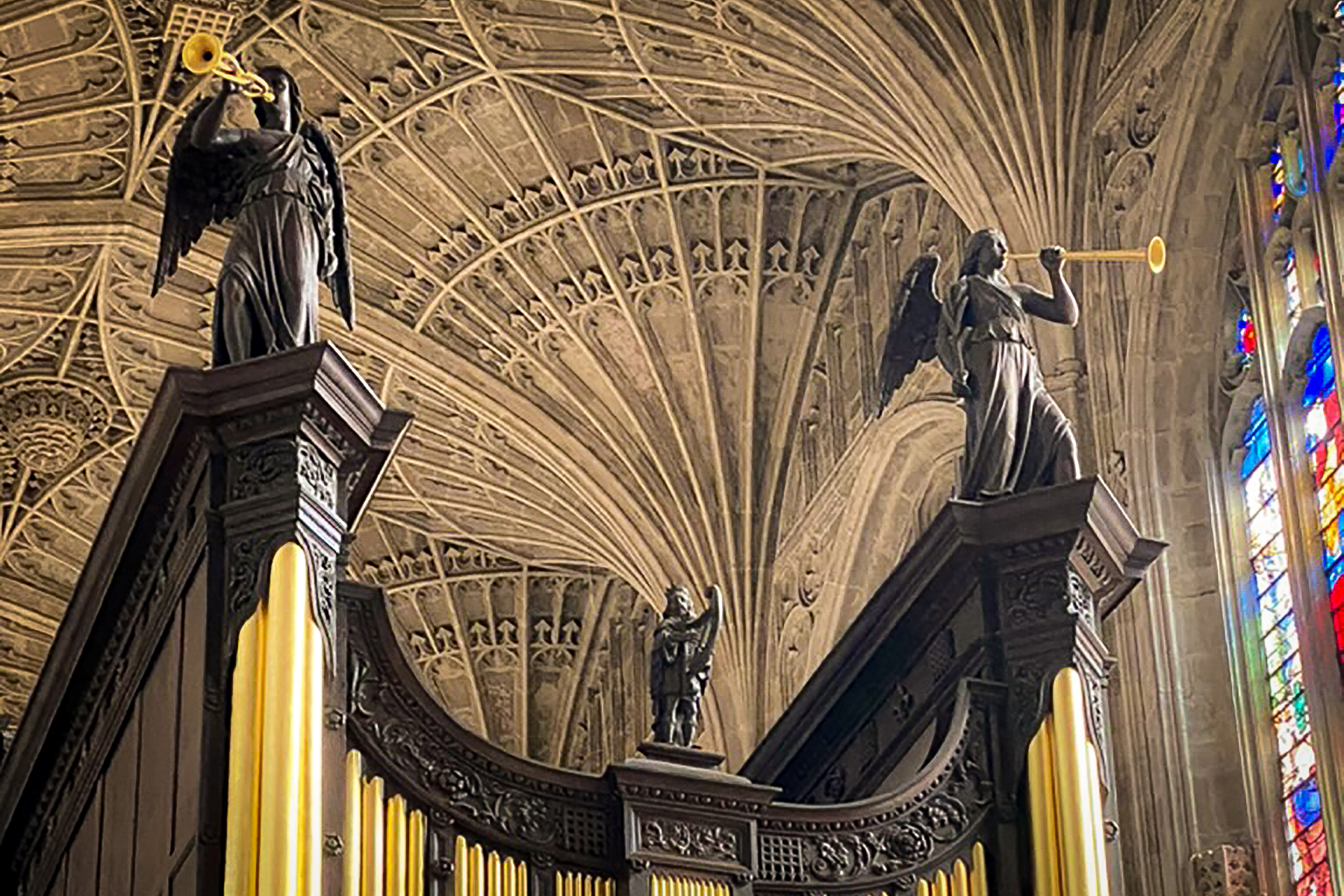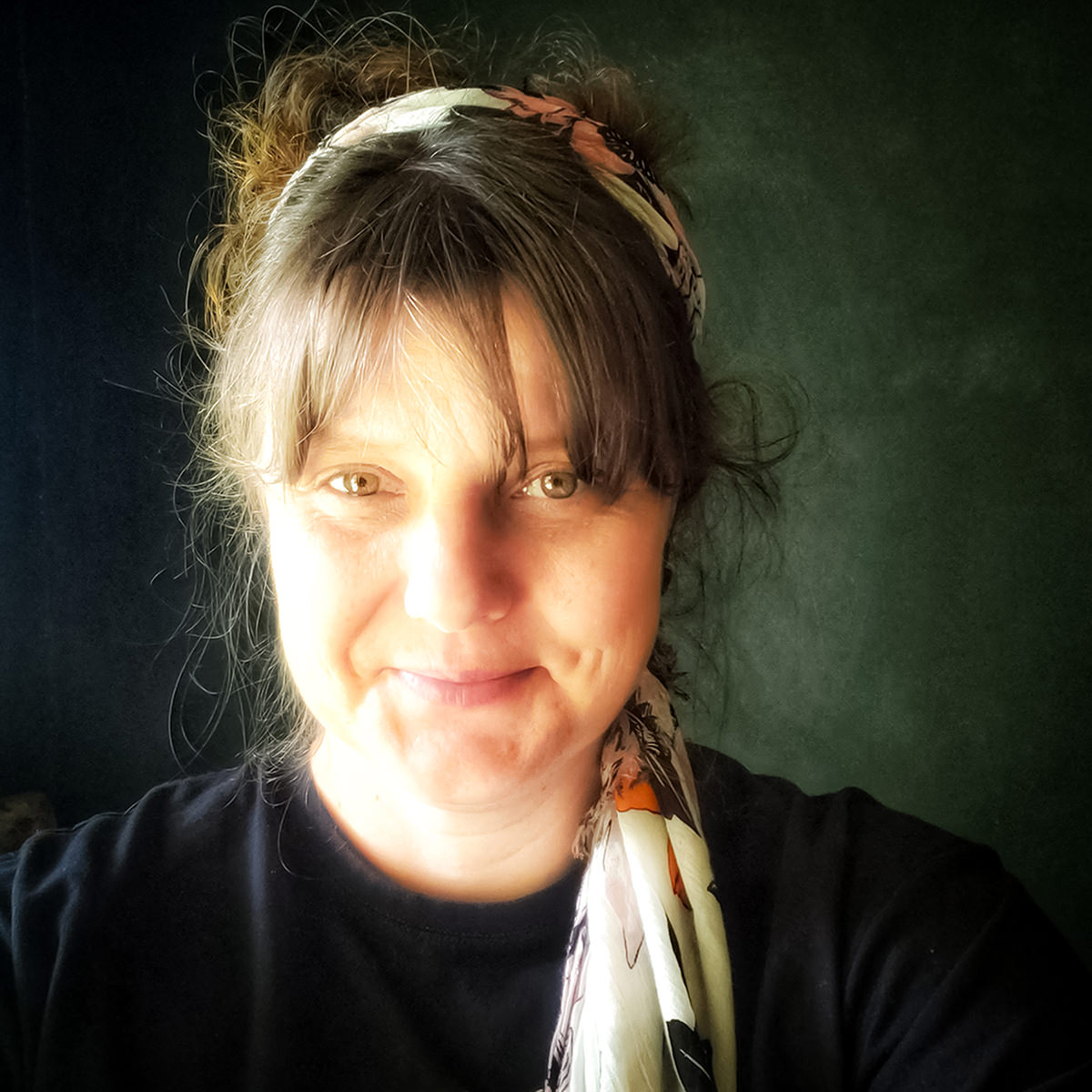I am going to recount my own experiences and beliefs here. I realize they will not be the same as those of the reader. I’m certain that many of you endured and suffered through 2020 with very different ideas and realities. This was my own.
In March of 2020, the CDC-recommended measures for COVID-19 prevention felt to me as if they were trying to squelch not only a virus but human spirits as well. As the curve remained un-flattened throughout the spring and summer, my husband and church family and I determined that we would live. We decided that we would honor the needs of physical bodies but not at the expense of the needs of our souls for truth, community, and beauty. We whole-heartedly embraced that beautiful and brave quote from C. S. Lewis, first published in 1948 in his essay “On Living in an Atomic Age”:
This is the first point to be made: and the first action to be taken is to pull ourselves together. If we are all going to be destroyed by an atomic bomb, let that bomb when it comes find us doing sensible and human things—praying, working, teaching, reading, listening to music, bathing the children, playing tennis, chatting to our friends over a pint and a game of darts—not huddled together like frightened sheep and thinking about bombs. They may break our bodies (a microbe can do that) but they need not dominate our minds. [1]
We gardened and ran and hiked and read and played and worked. We did not fear things that might hurt our bodies. We did human things and assumed that the rest of the world would catch up. Any day now, the shelter-in-place orders would be lifted.
September came and went. October arrived in a glorious defiance of a world that seemed to be spiraling into darkness. What had begun with a virus now felt like angry controversy at every corner. It felt as if every person on the planet was angry about something—too many restrictions, not enough restrictions, vaccines, masks, gathering together, not gathering, singing.
Because of the large amount of liquid I can and often do consume, I try to inform waitresses that I am part camel. Prohibition against singing was my proverbial straw. I did my best to “remain sensible” and not allow these things to “dominate our minds.” But not singing? That felt crushing.
![]()
For about ten years, I have played violin with a community orchestra. Each Christmas, I sing in the accompanying chorus, and every alternate year, we perform Handel’s Messiah. At the end of each Messiah year, our conductor, who is also a close personal friend, gives me a stern talking to. It goes something like this:
“You’ve got to stop crying. Just separate yourself from the words enough to sing the music.”
“If I could sing ‘Worthy is the Lamb that was slain and hath redeemed us to God!’ without crying, I would be doing it wrong. I refuse,” I respond, usually still blowing my nose and wiping my eyes.
“But I can’t look at you, because I will think about it and start crying as well,” he argueth.
“Then I am doing my job, for I am not here simply to sing notes. I am here to declare with my whole being, ‘Blessing and honor, glory and power be unto Him.’” I smile.
2020 was a Messiah year. This created a maelstrom of controversy in both our orchestra group and church, since there are quite a number of people who frequent both establishments. The board members of the symphony handed down a strict ruling: we cannot risk bad publicity and people’s health by offering a performance.
A secretive and quiet invitation went out to members of the chorus. Would we sing when the world said singing was dangerous and wrong? Would we sing at the risk of germs? Would we sing even if the World Health Organization said not to? If it had been any other music, I might have declined. If we were singing for the sake of “Jingle Bells” and “Deck the Halls,” I could have passed. But Messiah? “Comfort, comfort ye, my people” (Is. 40:1 KJV). “Rejoice, greatly, O daughter of Zion!” (Zech. 9:9 KJV). These words were meant to be sung into the darkness—against the darkness! They were written on a background of Jerusalem’s sorrow and woe, penned in ink made from the tears of prophets, and proclaimed with hope as the city turned to ash. These were the original songs of eucatastrophe.
I remember the first rehearsal so vividly. We had two voices for each part, which is a paltry number for music that was intended for ten times that many! The first piece we rehearse every year comes from 1 Corinthians 15:21. As we opened our mouths to sing, “Since by man came death,” I think we all wondered if we were expelling or inhaling a virus that would land us all in bed next week. By the time we finished that piece, proclaiming with all our strength, “by man came also the resurrection of the dead!” our spirits soared.
Week after week, we gathered and rehearsed. It was a brilliant, glittering rebellion. We began to call ourselves the Underground Messiah. We had no professional soloists, but several members of the chorus sang small recitatives. Invitation to the concert was word-of-mouth only. There were, after all, arrests being made in Canada because of unlawful gatherings. As the evening of the performance approached, we wondered, would we be fined? Would we find the church locked to us? Would anyone even come? Was the risk worth it?
![]()
How many times in the account of Christmas were these same questions pondered?
Surely Mary wondered many of them thousands of years ago in a land of deep darkness. She was just a young girl and responded so quickly to the angel’s prophecy. Did she later doubt and question? Women were stoned for unlawful pregnancy. Would she be outcast? Find her home locked to her? Was the risk worth it?
Joseph certainly questioned what he was supposed to do. Did he feel the breath of Herod’s soldiers on his neck as he guided his family to Egypt?
Even more, did Christ wonder? Would anyone come? Was this worth it? He knew His home would be locked. He would step into time and away from His Father, and the path back would be excruciating. “Surely, He hath borne our griefs” (Is. 53:4 KJV).
The night of the concert was cold and dark. We were so few in number, an embarrassingly small chorus and a chamber group of instruments. But when we stood to sing, the angels must have joined us because it sounded like our company was five times larger than it actually was. We sang in the face of viruses and darkness. We sang with all our hearts, and none of us could talk for days afterward for having spent our voices. We sang until we could literally sing no more. And just this once, my conductor didn’t reprimand me. We all cried—but most of all, we sang.
![]()
[1] Present Concerns: Essays by C.S. Lewis (edited by Walter Hooper; New York: Harcourt Brace Jovanovich, 1986), pages 73–80
The featured image, “Angels Over Organ,” is courtesy of Steve Moon and is used with his kind permission for Cultivating.
Second-generation homeschooling mom of five wee snickbuzzards, Jordan Durbin is a maker of humble pottery, fine artist, calligrapher, gardener, pickle maker, baker of all things gluten-inclusive and butter-laden, violinist, vocalist, rabbit raiser, wife of one good man, lover of her blessed Redeemer. She has a Bachelor’s degree in fine art from Grace College in Winona Lake, Indiana. She is an avid coffee drinker, reader, and published children’s book author and illustrator. She aspires to proclaim the resurrection with every moment of her life.
Leave a Reply
A Field Guide to Cultivating ~ Essentials to Cultivating a Whole Life, Rooted in Christ, and Flourishing in Fellowship
Enjoy our gift to you as our Welcome to Cultivating! Discover the purpose of The Cultivating Project, and how you might find a "What, you too?" experience here with this fellowship of makers!


Love it! All of it! Good for you! Praise God!